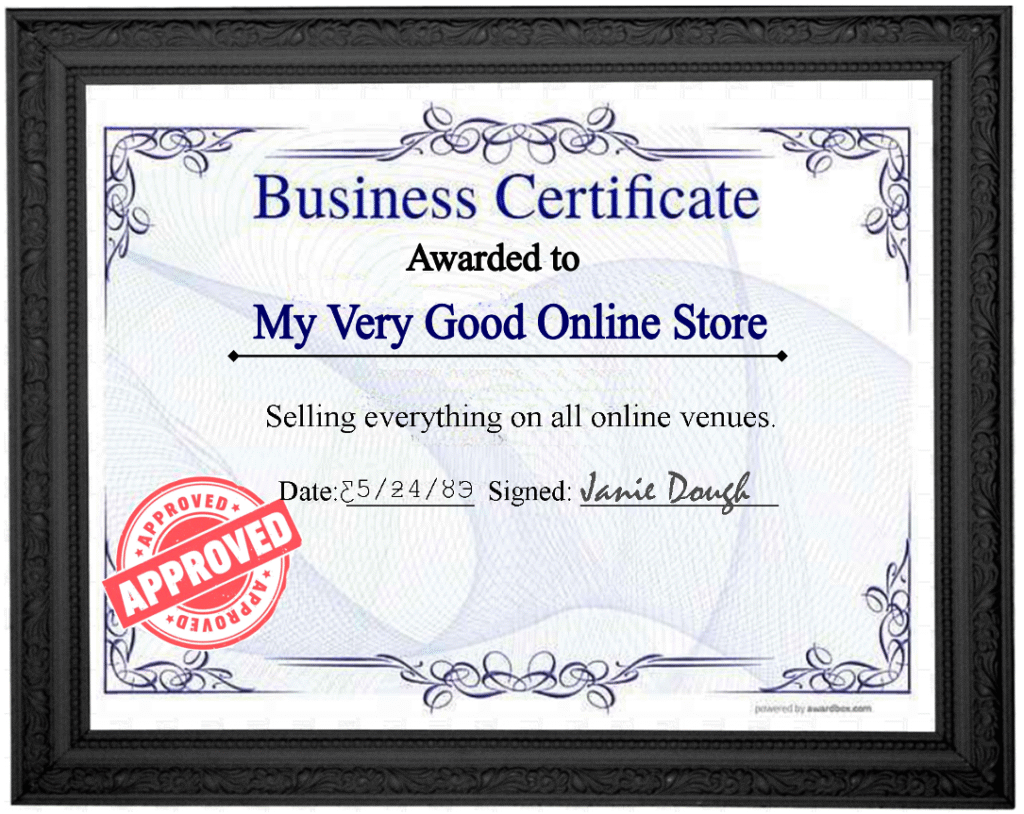Pros And Cons Of Getting A DBA For Your Online Sales
The rise of online marketplaces and e-commerce platforms has made it easier than ever for entrepreneurs to start selling products from the comfort of their homes. Whether you’re reselling vintage clothes, running a dropshipping business, or building your own brand, one of the first questions you may encounter is whether to operate under your own legal name or register a DBA—short for “Doing Business As.”
A DBA allows a person or business to operate under a trade name that is different from their legal name. For instance, if your legal name is Alex Johnson but you want to sell handmade jewelry online under the name “Moonlight Gems,” you would file a DBA for that business name. While DBAs can be a useful tool for small businesses, they come with both advantages and disadvantages that online sellers should carefully consider.

What Is a DBA?
A DBA is essentially a registered alias for your business. It doesn’t create a new legal entity—it simply lets you operate under a name other than your personal one or, if you already own a business entity, under a different trade name. Depending on your state or county, you’ll typically file your DBA with the local clerk’s office or a state agency, and in many places, you’ll need to renew it every few years.
Pros of Getting a DBA
1. Professional Branding
One of the biggest benefits of a DBA is the ability to build a professional brand. Customers often feel more confident buying from a store called “EcoThreads Apparel” than from “John Smith.” A DBA allows you to create a business identity that resonates with your target audience, adds credibility, and sets you apart from hobby sellers.
2. Business Banking Made Easier
Most banks and payment processors require a business name to open a separate business bank account. A DBA enables you to receive payments under your store name rather than your personal name, which not only looks more professional but also makes it easier to track income and expenses for tax purposes.
3. Privacy for Business Owners
Selling online often requires putting your business name on invoices, packaging, websites, and customer communications. Using a DBA keeps your personal name out of the spotlight, which offers a layer of privacy, especially if you want to separate your business identity from your personal life.
4. Low Cost Compared to an LLC or Corporation
Filing a DBA is relatively inexpensive. In many jurisdictions, the filing fee ranges from $10 to $100, making it one of the most affordable ways to formalize a business name. For new entrepreneurs testing an idea or running a side hustle, it provides a low-barrier way to appear professional without committing to the costs of forming an LLC or corporation.
5. Flexibility for Multiple Ventures
If you plan to run more than one online store, DBAs can be a cost-effective solution. For example, if you operate under a single sole proprietorship, you can file multiple DBAs to launch different brands. This allows you to test new markets without forming multiple separate companies.
Cons of Getting a DBA
1. No Liability Protection
A DBA does not create a new legal entity. This means that if your business is sued or goes into debt, you are personally responsible. Your personal assets—such as your car, savings, or home—are not protected. For sellers who expect significant growth or risk exposure, this is a major drawback compared to forming an LLC or corporation.
2. Ongoing Compliance Requirements
Depending on your location, DBAs may need to be renewed every few years. Some states and counties also require you to publish a notice of your new DBA in a local newspaper, which adds extra cost and hassle. Failing to renew your DBA can cause issues with banking and business credibility.
3. Limited Legal Rights to the Name
Registering a DBA does not give you trademark rights. Another business could register the same or a similar name as a trademark and gain stronger legal protection. If your online store grows and you want to safeguard your brand, you may need to pursue a trademark separately.
4. Potential for Confusion
Because a DBA does not establish a separate legal structure, there may be confusion between you and your business. Customers, suppliers, and even tax authorities may see you and your business as one and the same, which can complicate matters if disputes or financial problems arise.
5. May Not Scale Well
While a DBA is fine for small-scale online selling, it may not be the best structure for a business that intends to expand significantly. If you begin hiring employees, entering into contracts, or seeking investors, you may outgrow the DBA model and need to form an LLC or corporation anyway.
Should You Get a DBA?
Whether a DBA makes sense for you depends on your goals. If you’re just starting an online shop and want to appear professional without spending much, a DBA is a smart, low-cost option. It gives you a business identity, allows you to open a business bank account, and separates your personal name from your store branding.
However, if you’re serious about building a long-term business and want liability protection, you may want to consider forming an LLC. In fact, many entrepreneurs choose to form an LLC and then register a DBA for each brand they operate, combining the liability protection of an LLC with the flexibility of multiple trade names.

It’s up to you to “Do the Math”…
Whether getting a DBA for your online business is a good idea or a bad idea.
Final Thoughts
A DBA can be an excellent stepping stone for online sellers who are dipping their toes into e-commerce. It offers professional branding, privacy, and banking advantages at a relatively low cost. But it’s important to remember that a DBA alone does not protect you from legal or financial risks. As your business grows, you’ll want to reevaluate whether a DBA still meets your needs or whether forming an LLC or corporation would provide stronger protection and growth potential.
BOTTOM LINE: A DBA is a great cost-effective way to brand your online store and appear professional. But if you plan to scale or want liability protection, forming an LLC (with or without a DBA) may be a better long-term choice.






